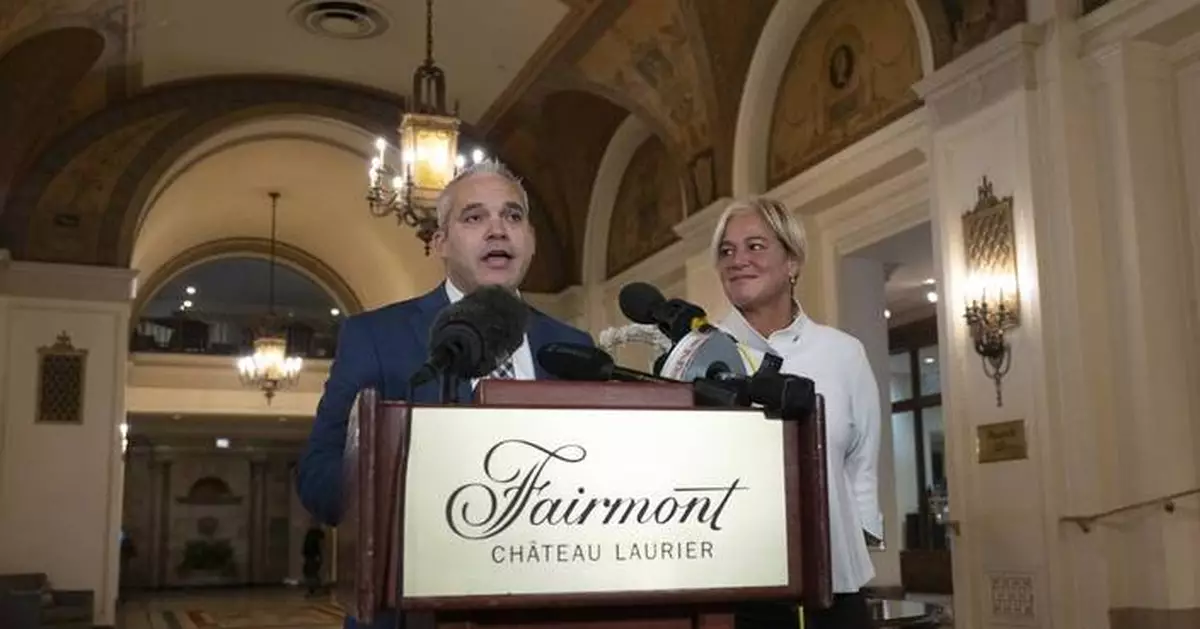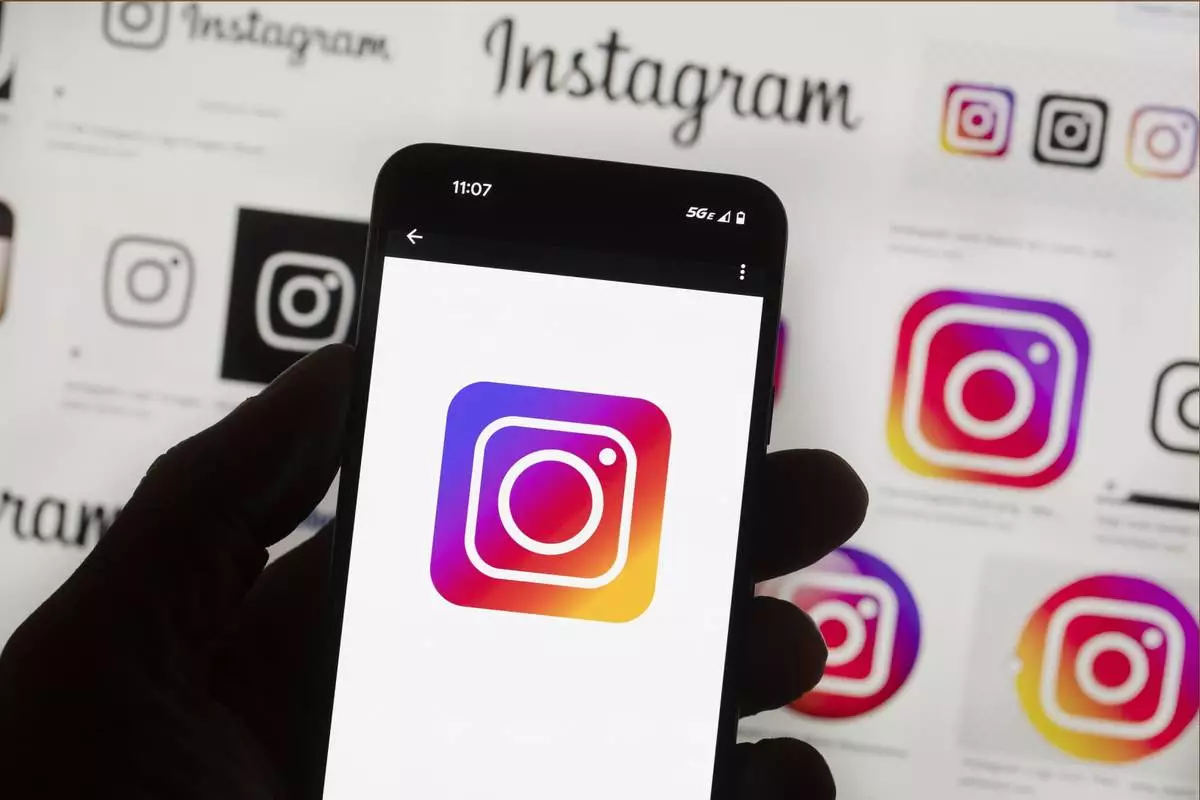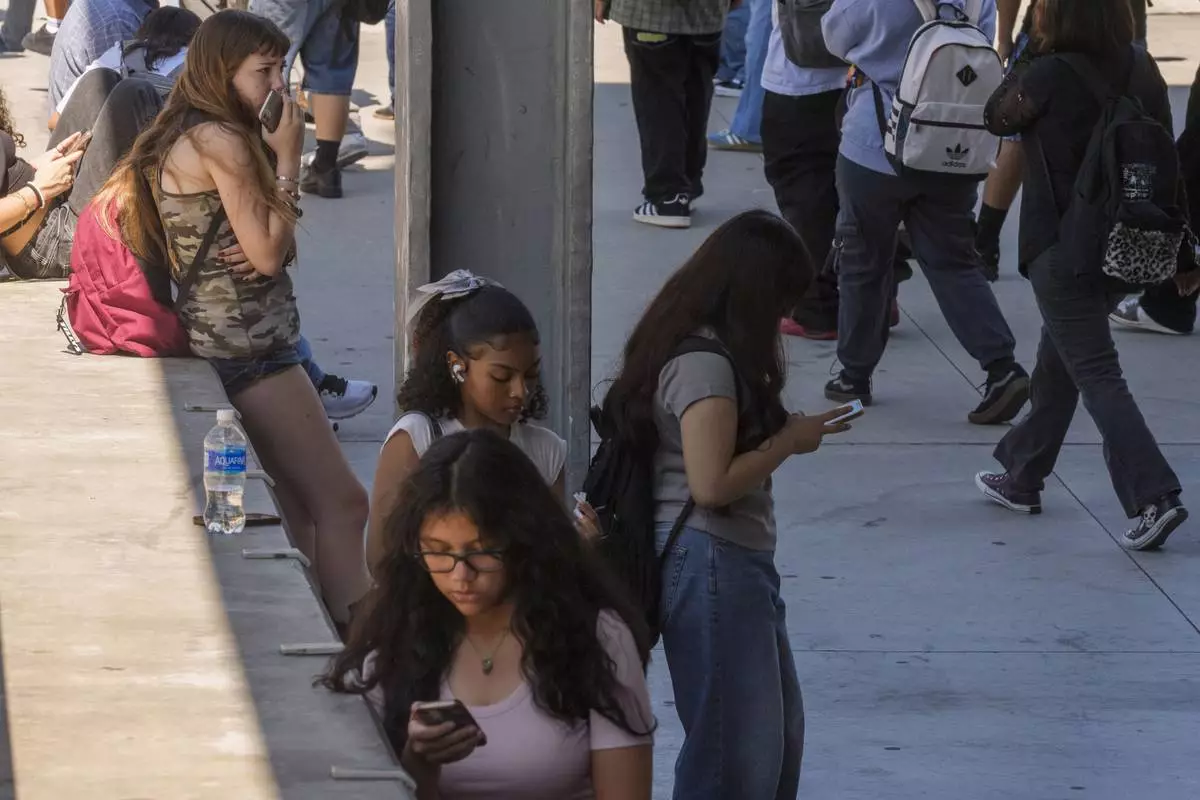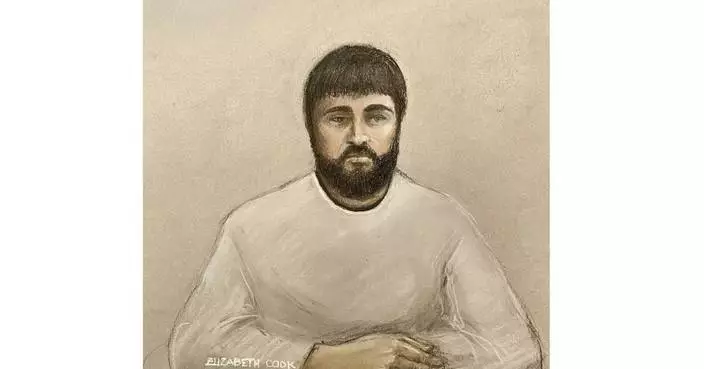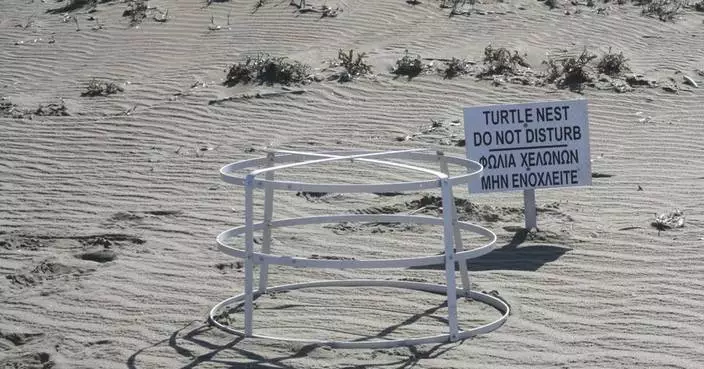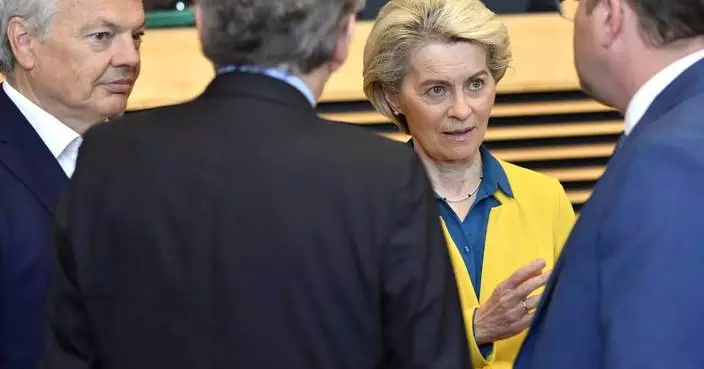OTTAWA, Ontario (AP) — Canadian police say a renowned portrait of Winston Churchill that was reported stolen from an Ottawa hotel has been tracked down in Italy.
Investigators will travel to Rome later this month to retrieve the 1941 portrait of the British leader taken by Ottawa photographer Yousuf Karsh, police said in a news release.
“Once in Ottawa police custody, the portrait will be ready for the last step of its journey home to the Fairmont Château Laurier, where it will once again be displayed as a notable historic portrait,” police said.
Police said “The Roaring Lion” was stolen from the Fairmont Chateau Laurier in Ottawa, sometime between Christmas Day 2021 and Jan. 6, 2022, and replaced with a forgery. The swap was only uncovered months later, in August, when a hotel worker noticed the frame was not hung properly and looked different than the others.
“It was determined that the portrait was sold through an auction house in London to a buyer in Italy, both of whom were unaware that the piece was stolen,” the release said. “With the help of public tips, forensic analysis, and international co-operation, investigators tracked down the individual responsible for the theft.”
Nicola Cassinelli, a lawyer in Genoa, Italy, purchased the portrait in May 2022 at an online Sotheby’s auction for 5,292 British pounds. He says he got a phone call from the auction house that October advising him not to sell or otherwise transfer the portrait due to an investigation into the Ottawa theft.
Cassinelli said he was surprised to learn that the answer to the high-profile heist might be hanging on his living room wall. He plans to attend a ceremony at the Canadian Embassy in Rome next Thursday to mark the return of the portrait.
At a press conference at the hotel Wednesday afternoon, Geneviève Dumas, general manager of the Fairmont Château Laurier, said the theft happened at the height of the COVID-19 pandemic.
“Everything was closed, and we narrowed the gap to 12 days,” Dumas said. “The way that happened, there was nobody in the hotel and we discovered it only eight months later.”
Ottawa police Det. Akiva Gellar said the portrait was recovered after “a very extensive investigation” that took more than two years but offered few specifics.
Much of the investigation is “still very sensitive because the matter is before the courts,” he said.
“A lot of the details about how we found it, and further details will be released during the ceremony in Rome,” said Gellar. “And later down the road, once we have the portrait back in Canada, we will be able to speak more about that.”
Police arrested a 43-year-old man from Powassan, Ontario, in April and have charged him with stealing and trafficking the portrait.
The man, whose name is protected by a publication ban, faces charges that include forgery, theft over $5,000 and trafficking in property obtained by crime exceeding $5,000.
The famous image was taken by Karsh during Churchill’s wartime visit to the Canadian Parliament in December 1941.
It helped launch the career of Karsh, who photographed of some of the 20th century’s most famed icons, including Nelson Mandela, Albert Einstein and Queen Elizabeth.
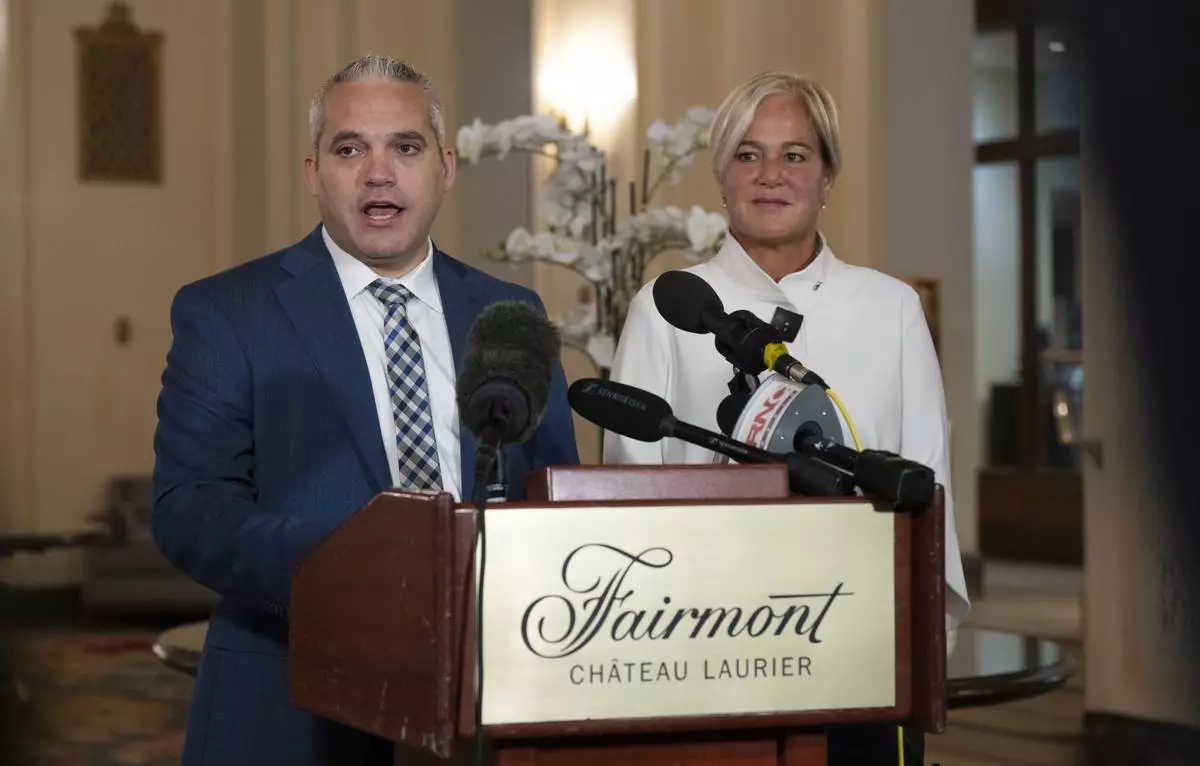
Fairmont Chateau Laurier General Manager Genevieve Dumas listens to Ottawa Police Services Detective Akiva Gellar speak about the stolen Yousuf Karsh portrait of Winston Churchill, during a news conference in the hotel in Ottawa, Canada, Wednesday, Sept. 11, 2024. (Adrian Wyld/The Canadian Press via AP)
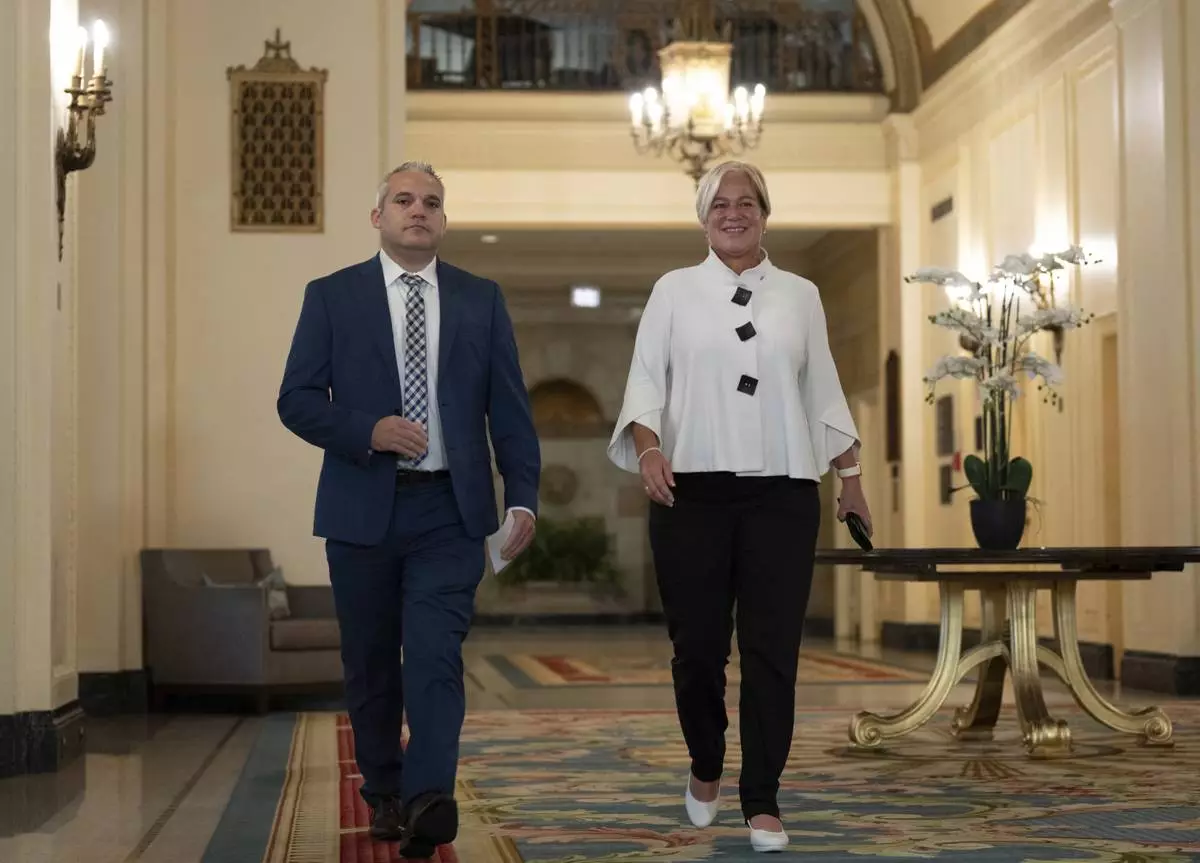
Fairmont Chateau Laurier General Manager Genevieve Dumas, right, speaks with Ottawa Police Services Detective Akiva Gellar as they make their way to a news conference to speak about the stolen Yousuf Karsh portrait of Winston Churchill, during a news conference in the hotel in Ottawa, Canada, Wednesday, Sept. 11, 2024. (Adrian Wyld/The Canadian Press via AP)
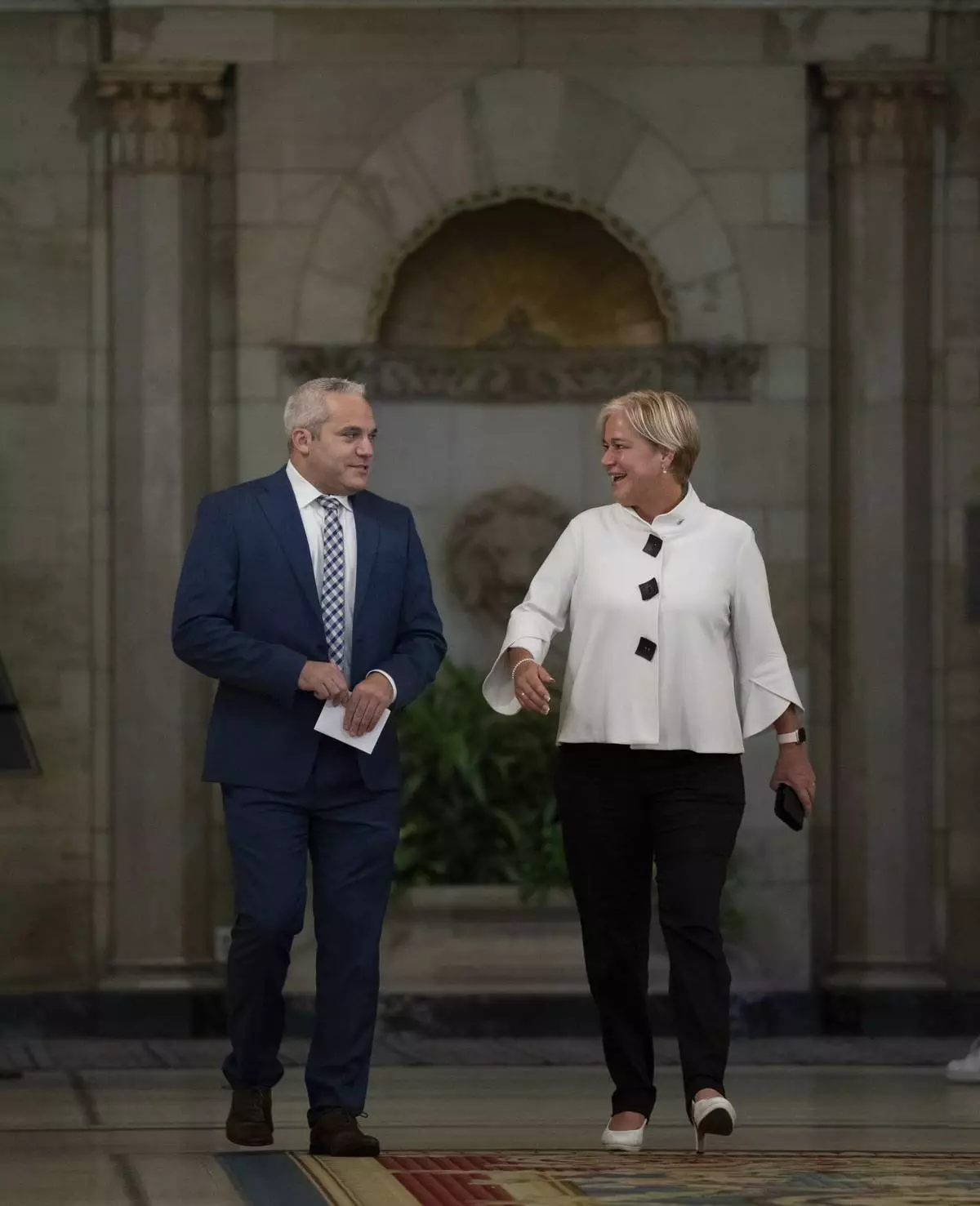
Fairmont Chateau Laurier General Manager Genevieve Dumas, right, speaks with Ottawa Police Services Detective Akiva Gellar as they make their way to a news conference to speak about the stolen Yousuf Karsh portrait of Winston Churchill, during a news conference in the hotel in Ottawa, Canada, Wednesday, Sept. 11, 2024. (Adrian Wyld/The Canadian Press via AP)
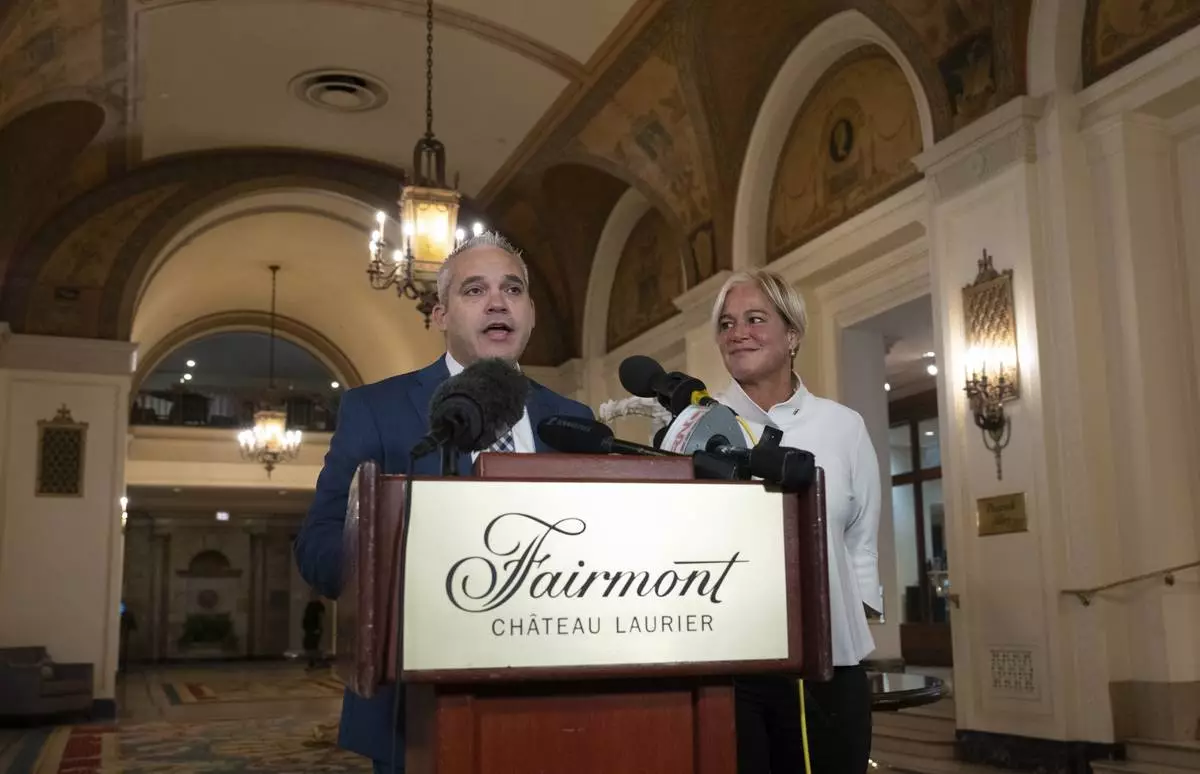
Fairmont Chateau Laurier General Manager Genevieve Dumas looks on as Ottawa Police Services Detective Akiva Gellar speaks about the stolen Yousuf Karsh portrait of Winston Churchill, during a news conference in the hotel in Ottawa, Canada, Wednesday, Sept. 11, 2024. (Adrian Wyld/The Canadian Press via AP)


